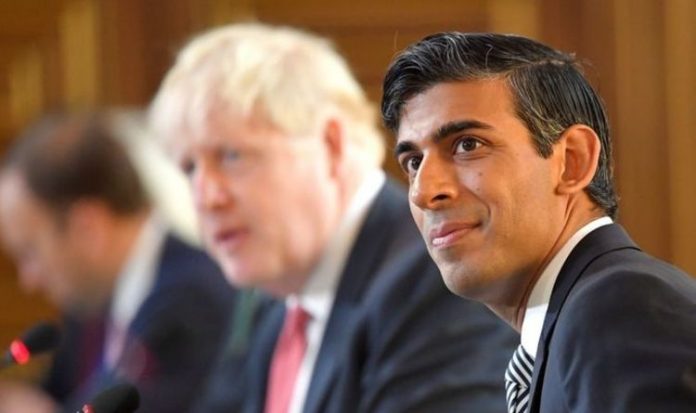The coronavirus pandemic has engulfed the UK’s health, society and economy. Each year, the Budget serves to outline the state of the UK economy and its outlook, and give details of the plans for raising or lowering taxes. The challenge for the Chancellor this year will be to outline how the government is going to help a population under immense financial pressure, as well as pay back the enormous borrowing undertaken by the government to fight the pandemic.
Rishi Sunak, who has been serving as Chancellor to the Exchequer since February 2020, will aim to strike a different tone this year to previous Budget statements.
His team have said the three aims for this year will be to strike a note of “openness, honesty and certainty” with the British public to explain the decisions the government will take going forward.
To achieve this, Mr Sunak plans to do something no Chancellor has done before: he will hold a press conference immediately after he finishes his statement in the House of Commons on Wednesday.
This will mark the first time a chancellor has ever taken immediate questions from journalists and the public, with no time to debrief, gauge the initial public reaction and prepare with his communications team.
Treasury officials say he’ll do so because this is “a budget unlike any other” with the country entering a “new phase” of the pandemic thanks to the successful vaccine rollout.
However, this news will do little to assuage concerns that Mr Sunak is planning to announce a major tax hike in the coming months to plug the yawning deficit left by the coronavirus pandemic.
READ MORE: Rishi Sunak opens up on ‘how he didn’t sleep’ over furlough scheme
Here are a few things to watch for as the Budget is unveiled:
Business rates
Ahead of the Budget, Mr Sunak has promised grants of up to £18,000 to get businesses going again, but the question remains of what he will do about business rates.
MPs across the board say the tax, which is calculated using the value of a company’s premises, is unfair and outdated in the wake of the huge boom of online retail during the pandemic.
Early reports suggest Mr Sunak will extend the business rates holiday – brought in last year to support shops – beyond its current end date of 31 March and into the summer.
Taxes
The government has borrowed a record £270bn so far in the fight against the pandemic and has to come up with a way of paying it back.
Mr Sunak said he will use the Budget to “level” with the public about the challenges facing the economy and the need to repay the vast amounts of public money spent during the pandemic.
According to reports, Mr Sunak is likely to announce several tax increases.
There are rumours he will raise corporation tax from its current level of 19 percent to 23 percent, which is still below the G7 average.
There are also rumours he will freeze the personal income tax allowance, which usually rises in line with inflation, pushing many taxpayers into higher bands.
Whatever he does will have to honour the Conservative party’s manifesto pledge not to raise income tax, national insurance or VAT.
DON’T MISS:
Rejoiners blasted for mass anti-Brexit rally: ‘Train has left!’ [INTERVIEW]
BBC backlash: Fury over offensive anti-Semitic debate [INSIGHT]
Yanis Varoufakis’ dismissal of EU’s claim that Brexit can help bloc [VIDEO]
Stamp duty holiday
The stamp duty holiday introduced last year served to prop up the housing market at the start of the crisis.
The scheme also drove up the average value of a home by 8.5 percent in 2020.
That tax break is meant to conclude at the end of March, and many buyers have found themselves facing big bills if they don’t complete their transactions on time.
However, it is expected Mr Sunak will extend the stamp duty holiday to prevent this cliff edge.
Levelling up
Mr Sunak is expected to set out his vision for a post-Covid, post-Brexit Britain, which would include money for “levelling up” different parts of the UK.
The Financial Times has reported Mr Sunak will announce the locations of special economic zones, or freeports, with low taxes to stimulate regional growth.
He’s also expected to announce more funding to help the UK meet its decarbonisation goals.







